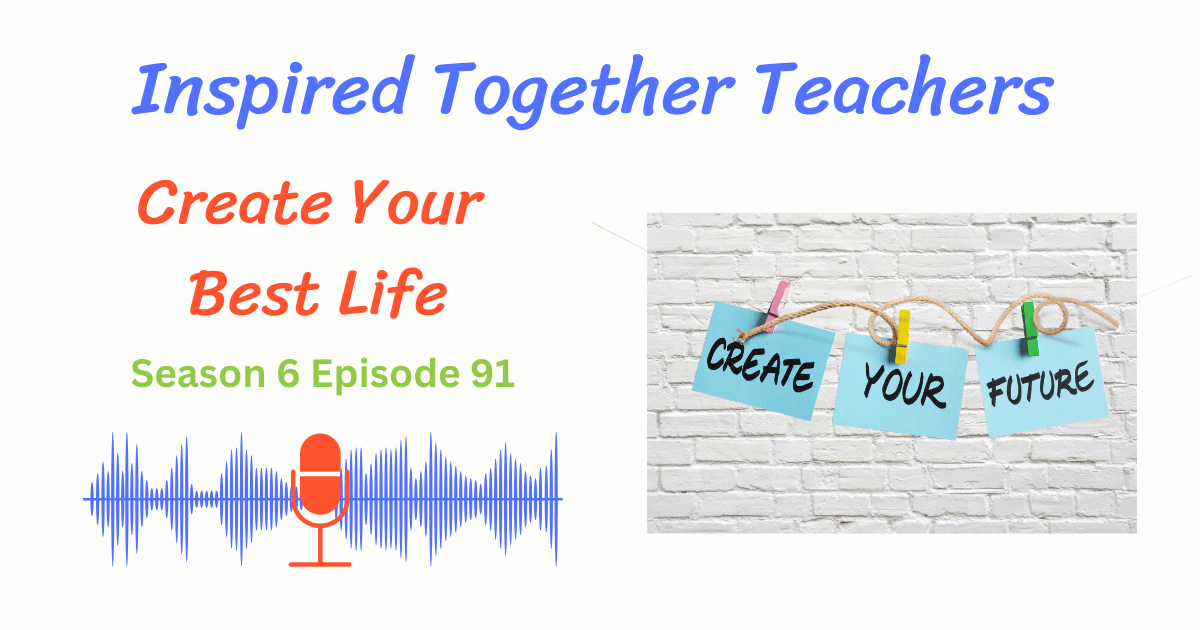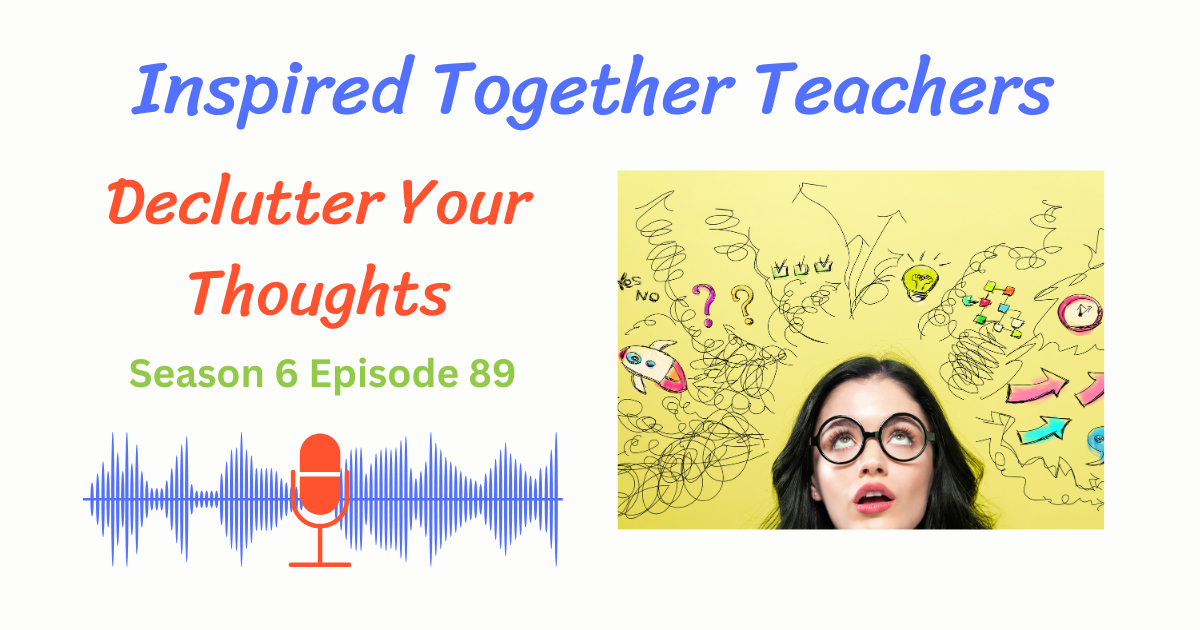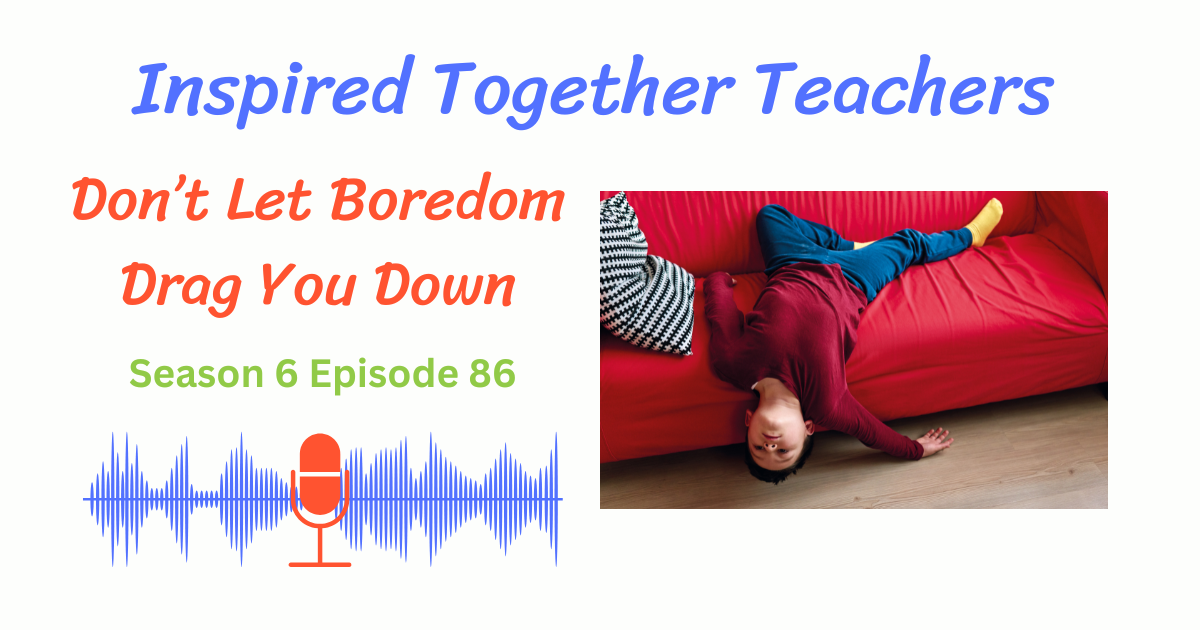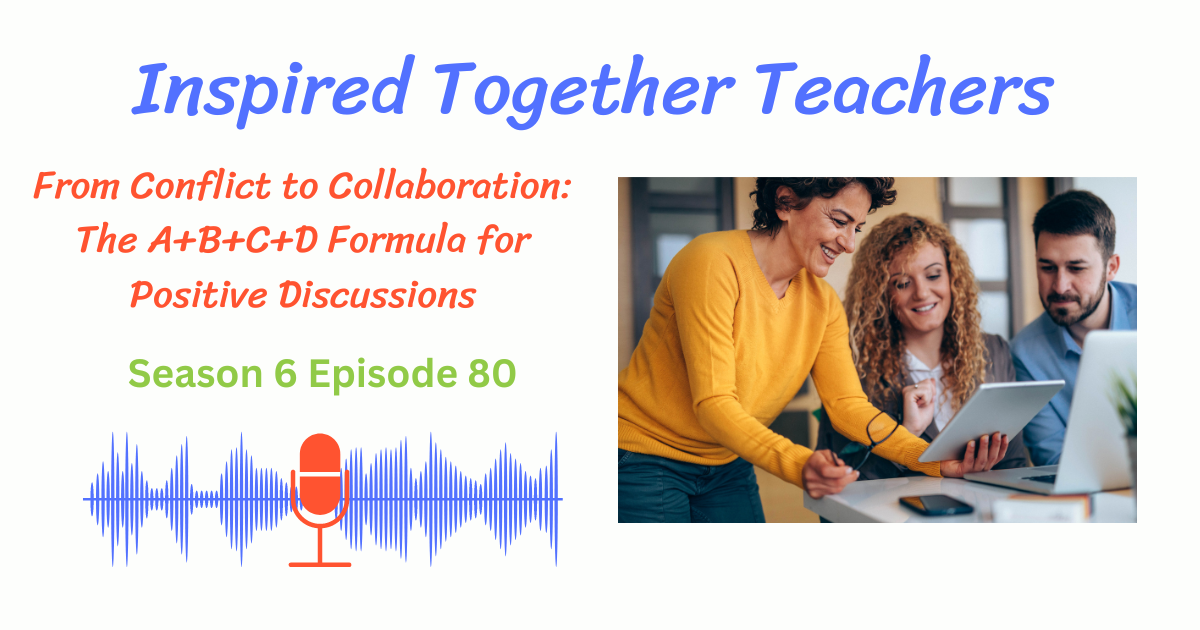Create Your Best Life Season 6 Episode 91
Listen to this episode if you want to stop living on autopilot and step into the life you want to live. Join us in our 4 week challenge and create your best life!
Show Notes:
Episode Summary:
Have you ever felt like you’re living on autopilot? You get the essentials done and have good intentions for doing some things you’d love to do, but somehow you never get around to it? Has the day-to-day routine taken over the person you used to be, and sometimes you wonder whatever happened to the person you once were?
Maybe you have goals and dreams and plans and you’re yearning for a life you know is possible but somehow can’t seem to create. You want to close the gap between the life you are living now and the life you know you are capable of having.
If any of those things resonate with you, join us as we begin a brand new four-week challenge designed to help you create your best life.
In this episode:
These show notes are not a word-for-word script of the podcast. As always, we often talk back and forth and share comments and examples. Please listen to the podcast for the best experience.
Introduction:
You’ve probably heard us talk about our quest to live an inspired life. If not, you can go back to listen to episode 1 of this podcast, The Inspired Life. We created this podcast to create a community of like-minded people who also want to be inspired.
So, how do you create your best life? How do we do it? Today we are going to dig into that topic a little more and reframe it. It’s not enough to dream of the life you want or wait for someday when you have more time. It is a process, and it requires attention and action.
We’ve been on this journey to create our best life for quite a while, and we are not here with all the answers and we’re certainly not proclaiming that we have the perfect life, we have been deep into the research and we’ve used lots of strategies taken lots of steps.
We’re inviting you into the process as we continue on this path.
Who are you to want more?
Sometimes we feel like we can’t complain. Our life isn’t terrible, and certainly others have it far worse. You might comfortably numb. You know you are in this space when someone asks you how you are and you reply, “ fine”, or “busy”, or “surviving, “ or sarcastically, “ living the dream.”
Who are you to not want more? Are we supposed to settle for ok?
When is a time when you have settled for less that you should? How did you feel?
The question is not,” Who are you to want more?”, the questions should be, “who are you not to?”.
Laurie Santos, A happiness researcher at Harvard says, “we’re entitled to and capable of much more joy than we have settled for.”
Ouch!
How did we lose ourselves?
For this, we turn to the work of Jonathan Fields, author of the book How to Live a Good Life and creator of The Good Life Project Podcast.
Fields says we all have three buckets that need to be filled in order to live a good life. As teachers, you likely know and use this analogy. Teachers often talk about filling their buckets, or helping kids understand how to fill their buckets or other’s buckets.
Sometimes our buckets get a small leak, and then they empty out bit by bit. It usually isn’t one, big, traumatic event that creates a problem, it is a small leak that over time, causes a big ripple. You don’t notice it, because each tiny bit isn’t much in itself, but together it can be devastating.
What are the three buckets?
We are going to introduce each of these buckets today, but over the next several weeks we will dig into each bucket and share some activities to help you keep your buckets full.
Bucket 1- Vitality
The vitality bucket includes body and mind, both physical and mental health. It is the absence of pain, stress, burnout, depression and anxiety.
It includes traits such as a sense of calm, peace, and optimism.
When the vitality bucket leaks, we deteriorate either physically or mentally or both.
Bucket 2- Connection
This bucket is our relationships bucket. We know from longitudinal happiness studies that strong relationships are the number one key to a happy and fulfilling life.
Our connections bucket is your relationships with family, friends, colleagues, community, students, and even spirituality or belief in a higher power.
This is where we get our sense of belonging and love which is one of Maslow’s core needs. It is also the source of laughter, feeling understood and validated. Our connections can help us to feel alive.
When the connection bucket is leaking, life gets more dull. We know something is missing.
Bucket 3- Contribution
The contribution bucket is where we hold meaning in our lives. It is where we connect to something greater than ourselves. It is also where we bring our gifts into the world.
It is accessing your full potential- finding flow. You are using your gifts, your strengths, your interests in a way that is fulfilling. You feel good. You feel like you are doing something impactful or useful in the world.
Our contribution bucket is where we do what matters. When we feel like we are not contributing in any positive way, we feel a loss. Something is missing.
Teachers know this. They feel a higher calling- it is not about the money. They know that they are doing things that help students. Yet if you work very hard and don’t believe you are having any kind of impact, it is easy to become unmotivated.
In order to create our best life, all three of these buckets are important.
Think about what happens if you have good health and good connections, but find your work meaningless. Nothing feels worthwhile. There is no great joy. You feel a loss of potential. You are likely going through the motions.
Or imagine have meaningful work, and you are using your gifts in ways that matter, but you have a lack of connection in your life. This is loneliness.
Or you have great connections and meaningful work, but your body or mind hurts.
In the next few weeks, we are going to dig into ideas to examine and strengthen all of your buckets.
Today, we start by giving you a short activity.
The 60 Second Snapshot (Jonathan Fields)
This activity is designed to help you assess how full or empty each of your buckets are. It is not meant to shame you or judge you, nor is it meant to be a permanent answer. As you go through life, you will likely have different answers at different times, even from day to day.
Answer the following 3 questions:
- Vitality: At this moment in time, how satisfied am I with my current level of physical ability, energy, appearance, well-being, my ability to weather adversity, and my capacity to feel calm, aware, present, in charge, optimistic and joyful?
- Connection: At this moment in time, how satisfied am I with the depth and quality of my loving relationships, friendships, and sense of genuine belonging?
- Contribution: At this moment in time, how satisfied am I with the level of meaning that I feel from the way I am bring my gifts to the world? Am I doing what matters?
Remember this is just one snapshot, one moment in time.
Can you feel a leak somewhere? Where do you see room for improvement? Which question caught you off guard?
What is one small step you could take to fill one of your buckets?
Michele: I sometimes struggle with the contribution bucket. I work really hard at things where I don’t see an impact for a long time. That can be very unmotivating. This week I’m going to create a playlist of 4 or 5 songs that will help keep me inspired to create my best life. This can help me fill my contribution bucket and remind me that what I do matters.
Paula: This week I’m going to focus on vitality. I am sick from over doing it. I have physical outward signs that my vitality is suffering. This week, I am going to prioritize my sleep. I will listen to my body and sleep when I need to sleep.
What could you do this week to fill one of your three buckets? Let us know, we’d love to hear your ideas.
Conclusion:
We end today with the following quote from Jonathan Fields,
“A good life isn’t a place at which you arrive, it’s a lens through which you see and create your world.”
Recap:
Three keys to help you create your best life include vitality, connections, and meaningful contributions. We will explore each of these in the coming weeks.
You have a choice. You can live on autopilot, living in a future set by someone else’s agenda, or you can create the life you want to live.
Quote:
“A good life isn’t a place at which you arrive,
it’s a lens through which you see and create your world.”
Jonathan Fields
Resources mentioned in this episode:
Book: How to Live a Good Life by Jonathan Fields
Related Episodes/Blog Posts:
Inspired Together Teachers Podcast Episode 1 The Inspired Life
Connect with the Inspired Together Teachers Community:
Website: https:www.inspiredtogetherteachers.com
Instagram: Inspired-Together-Teachers
Facebook: Inspired Together Teachers
Inspired Together Teachers Network Facebook Group
Linked In: Inspired Together Learning
More About Inspired Together Teachers:
Are you a teacher struggling to balance your best work with your best life?
If you are dedicated and caring but often overwhelmed and exhausted, join us at Inspired Together Teachers. We’ll give you inspiration, strategies and tips that help you navigate life’s challenges as a stronger, more confident, and more joy filled person, both in and out of the classroom.
Inspired Together Teachers will give you practical tools to experience more of what matters most in your life.
Co-hosts Paula Schmidt and Michele Vosberg are award winning educators with the experience and skills to help teachers thrive in life and work. They’ve taught at all levels, worked with thousands of teachers, and conducted workshops around the world. They are also the authors of the #1 best-selling book The Inspired Teachers Journal: A Weekly Guide to Becoming Your Best Self.
Paula and Michele would love to have you to join them on their quest to lived inspired lives.
This post may use affiliate links. If you purchase an item through our link, we will receive a small portion of the profit with no extra cost to you. This helps us to pay for the costs of bringing this free podcast to our community.






